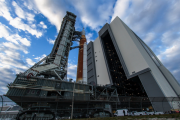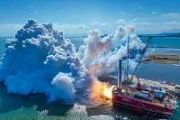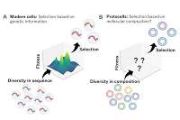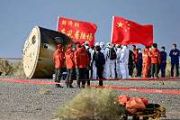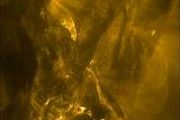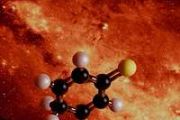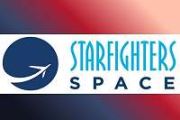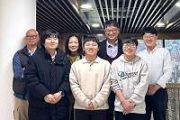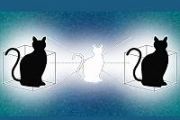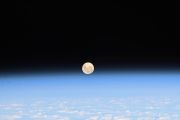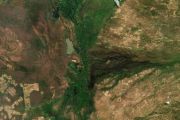
Copernical Team
The role of space in driving sustainability, security and development on Earth
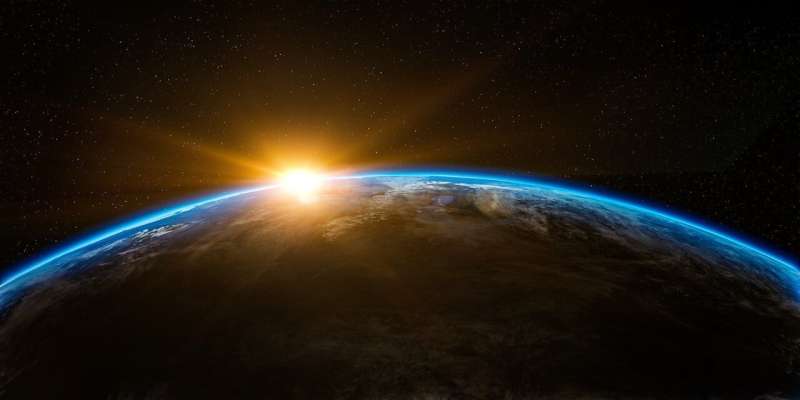
A new report reveals five actions that leaders can take to contribute to economic development, advance global security and sustainability, and make space a safe and globally accessible domain.
This report, a collaborative effort with the World Economic Forum, and informed by the views of approximately 100 industry leaders—describes potential scenarios for the future of space. It identifies five actions that could put the industry on the path to more positive outcomes, in which the full benefits of the space economy are realized.
Tanja Masson-Zwaan, Asst. Professor and Deputy Director of the International Institute of Air and Space Law, was involved in the realization of the report.
"The world is in a space renaissance," the report reads. "Expanding activity in space is beginning to outpace governance, technological progress is increasing accessibility, commercial funding is at an all-time high, and more nations and companies are clamoring to be part of the activity. Already space plays a role in advancing global sustainability and security priorities, but the potential is even greater. The future is in the balance, and all stakeholders have the capability to contribute to a more successful sector.
Third launch attempt for Boeing's beleaguered Starliner spacecraft
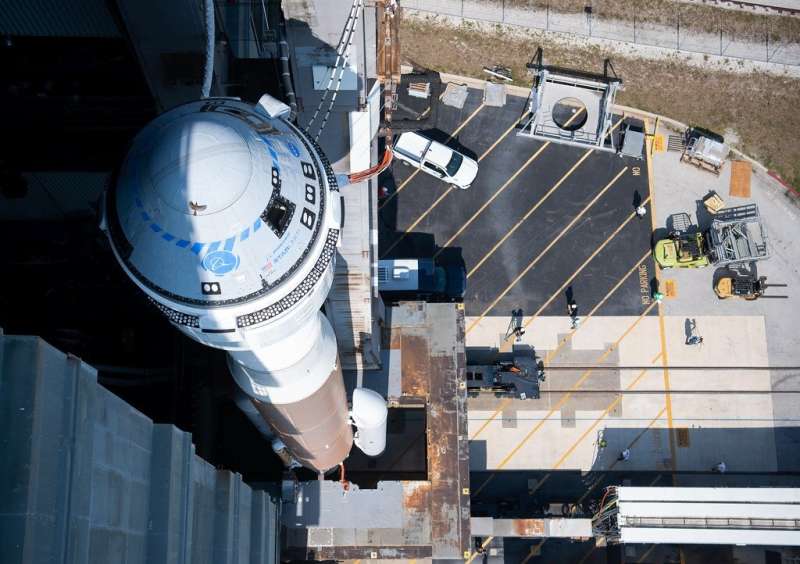
American aerospace giant Boeing is making a third attempt to reach the International Space Station Thursday in a critical uncrewed test flight for its Starliner capsule, which has been beset by numerous failures and false starts.
Lift-off for Orbital Test Flight 2 (OFT-2) is scheduled for 6:54 pm Eastern Time (2254 GMT) from the Kennedy Space Center in Florida, with the spaceship fixed atop a United Launch Alliance Atlas V rocket.
Space agencies provide global view of our changing environment
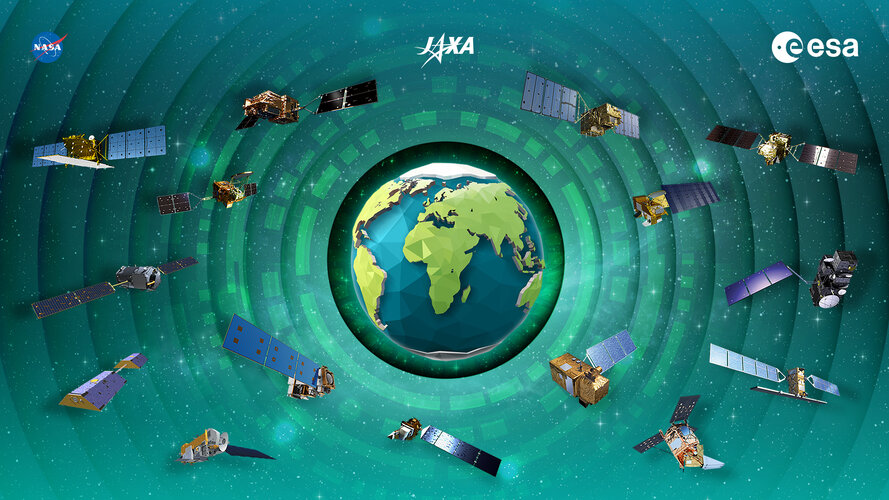
International collaboration among space agencies is central to the success of satellite Earth observation and data analysis. ESA, NASA and JAXA (Japan Aerospace Exploration Agency) have continued their joined effort to develop a storytelling dashboard that combines their resources and expertise to strengthen our global understanding of the changing environment and its economic effects.
A dazzling Hubble collection of supernova host galaxies
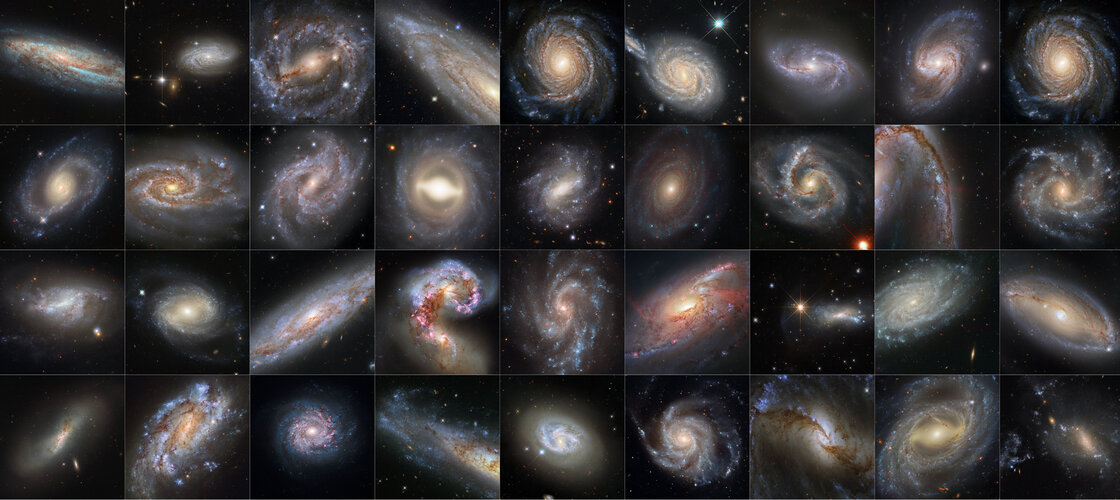 Image:
A dazzling Hubble collection of supernova host galaxies
Image:
A dazzling Hubble collection of supernova host galaxies Volunteers watching the skies
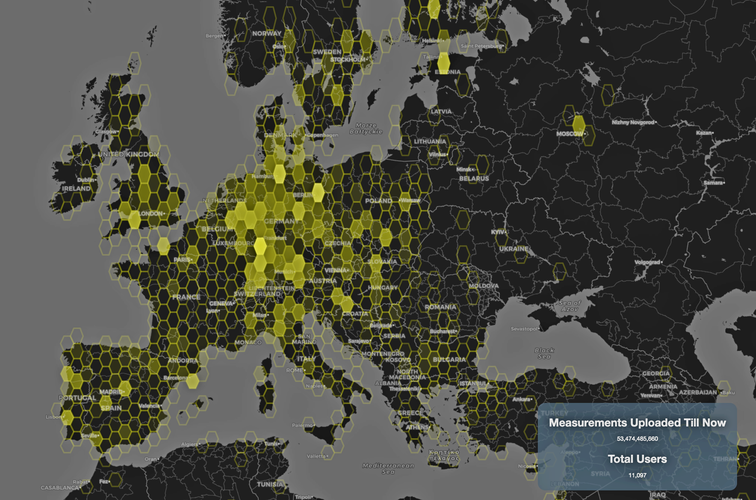 Image:
Volunteers watching the skies
Image:
Volunteers watching the skies Physicists explain how type of aurora on Mars is formed
 Physicists led by the University of Iowa have learned how a type of aurora on Mars is formed. In a new study, the physicists studied discrete aurora, a light-in-the-sky display that occurs mostly during the night in the red planet's southern hemisphere. While scientists have known about discrete aurora on Mars-which also occur on Earth-they did not know how they formed. That's because Mars does
Physicists led by the University of Iowa have learned how a type of aurora on Mars is formed. In a new study, the physicists studied discrete aurora, a light-in-the-sky display that occurs mostly during the night in the red planet's southern hemisphere. While scientists have known about discrete aurora on Mars-which also occur on Earth-they did not know how they formed. That's because Mars does Status Update on NASA's MAVEN Spacecraft
 On February 22, 2022, NASA's MAVEN spacecraft went into safe mode when the spacecraft's Inertial Measurement Units (IMUs) began exhibiting anomalous behavior. The spacecraft is currently out of safe mode, stable and in Earth-nadir mode, pointing its high gain antenna toward Earth to facilitate high-rate communications. In this configuration, however, MAVEN cannot perform communications relays fo
On February 22, 2022, NASA's MAVEN spacecraft went into safe mode when the spacecraft's Inertial Measurement Units (IMUs) began exhibiting anomalous behavior. The spacecraft is currently out of safe mode, stable and in Earth-nadir mode, pointing its high gain antenna toward Earth to facilitate high-rate communications. In this configuration, however, MAVEN cannot perform communications relays fo Inmarsat ELEVATE launched to accelerate IoT industry growth
 CAPTION ELEVATE will bring together development program, partner ecosystem, online marketplace to enable businesses around the world to harness industrial IoT success
With more businesses recognising the impact of IoT technologies on their operations and on the world, and the number of global satellite IoT connections set to continue growing at a 25% CAGR [Source: Omdia] in the coming years, th
CAPTION ELEVATE will bring together development program, partner ecosystem, online marketplace to enable businesses around the world to harness industrial IoT success
With more businesses recognising the impact of IoT technologies on their operations and on the world, and the number of global satellite IoT connections set to continue growing at a 25% CAGR [Source: Omdia] in the coming years, th US Air Force and Lockheed Martin complete ARRW hypersonic boosted test flight
 The U.S. Air Force and Lockheed Martin have jointly conducted a hypersonic-boosted flight test of the AGM-183A Air-launched Rapid Response Weapon (ARRW) from the service's B-52H Stratofortress.
The successful flight demonstrates the weapon's ability to reach and withstand operational hypersonic speeds, collect crucial data for use in further flight tests, and validate safe separation from
The U.S. Air Force and Lockheed Martin have jointly conducted a hypersonic-boosted flight test of the AGM-183A Air-launched Rapid Response Weapon (ARRW) from the service's B-52H Stratofortress.
The successful flight demonstrates the weapon's ability to reach and withstand operational hypersonic speeds, collect crucial data for use in further flight tests, and validate safe separation from 

